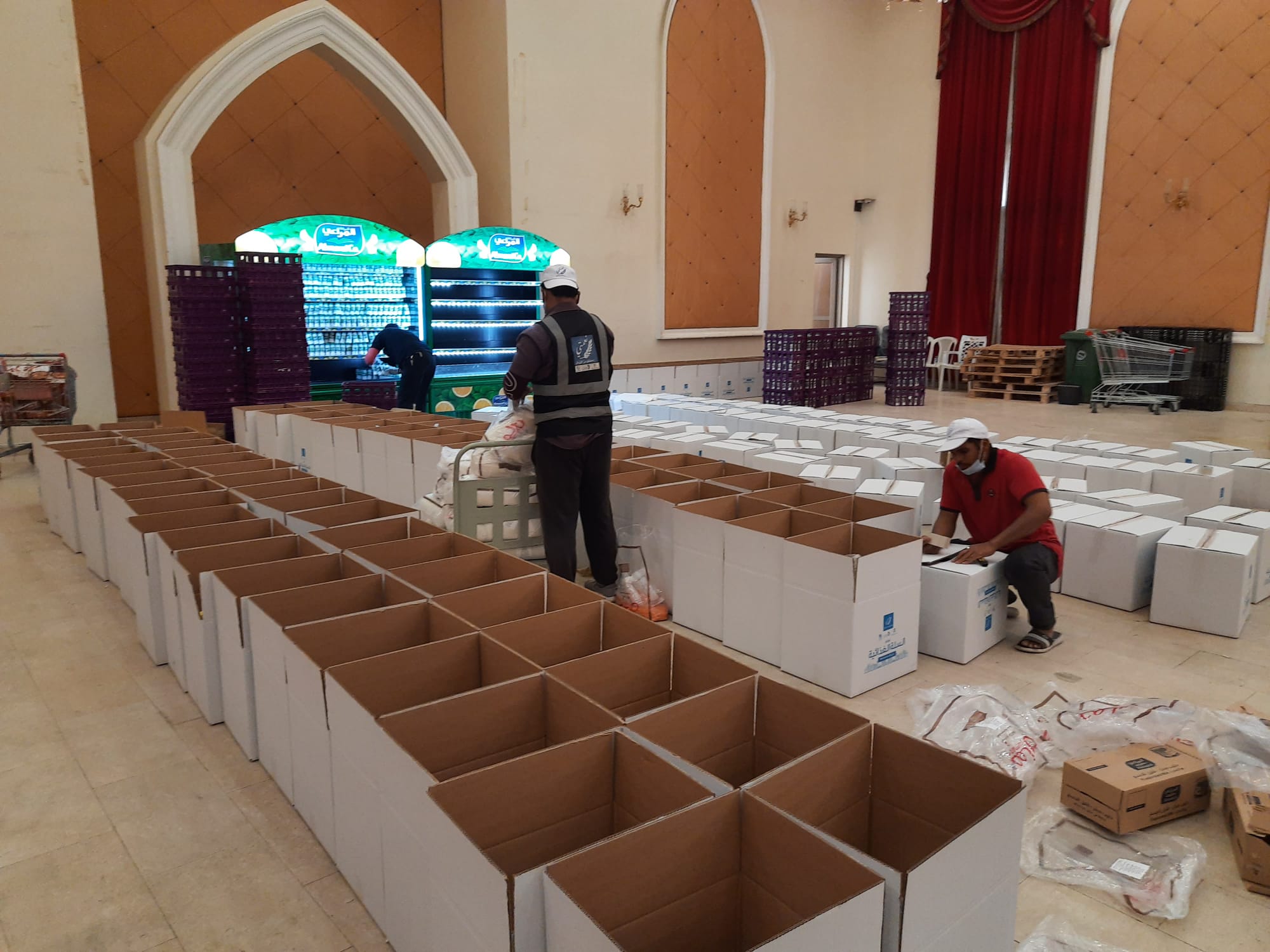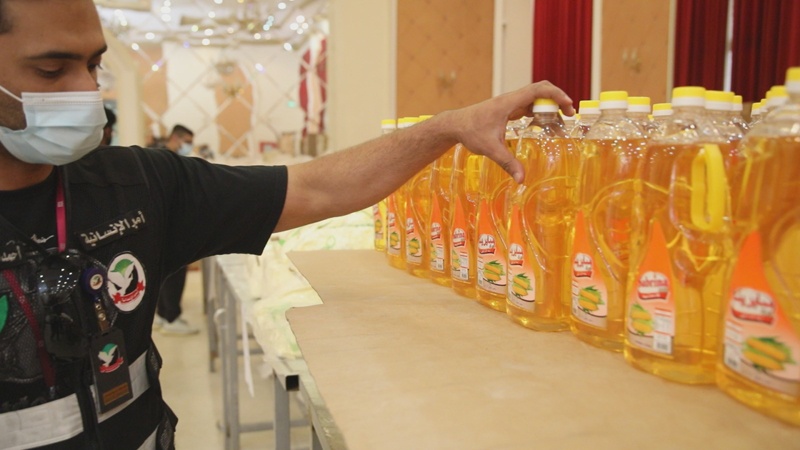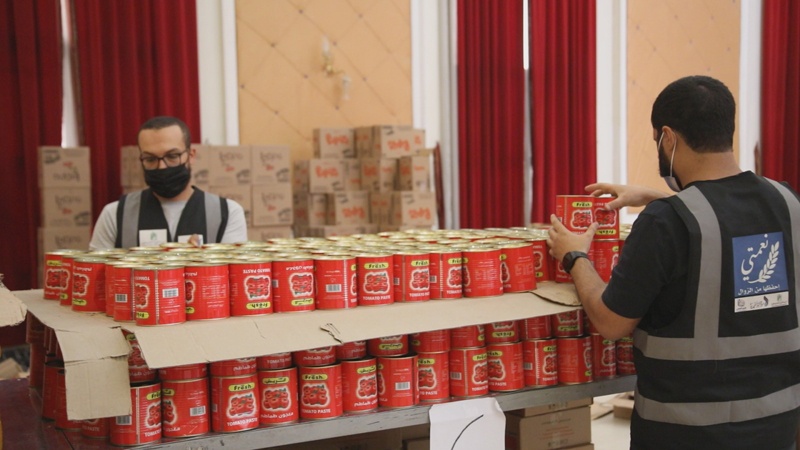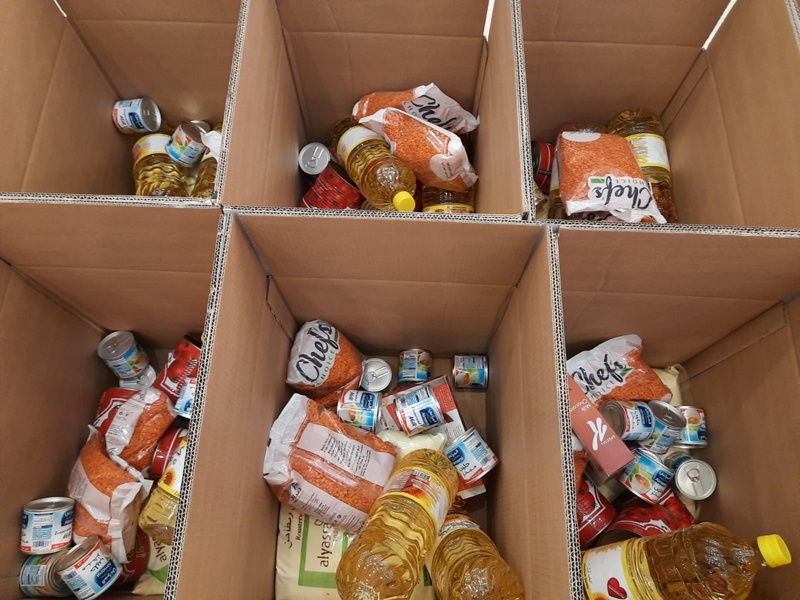 Volunteers stack foodstuff donated by companies at a repurposed marriage hall.
Volunteers stack foodstuff donated by companies at a repurposed marriage hall.By Shakir Reshamwala
Food waste is a major problem in Kuwait, and a poor disposal system only compounds it. "Forty percent of food is wasted around the world due to rampant consumerism, enough for three meals a day for 800 million hungry people. We have to manage food to feed everyone," said Mohammad Yousef Al-Muzaini, Chairman of Mabarrat Al-Birr Al-Khairiyyah, a Kuwaiti charity.
His uncle Ahmad Al-Muzaini founded the society in 1988 to distribute leftover food collected from restaurants and hotels to those in need. Due to health and safety restrictions on the handling of cooked food, the charity later shifted to distributing packaged and frozen foodstuff. Earlier this year, Mohammad Al-Muzaini, 50, launched the Nemati food bank to collect and distribute nearly-expired (but perfectly edible) foodstuff to needy families.
 Mohammad Yousef Al-Muzaini
Mohammad Yousef Al-Muzaini"Food waste is generated by households, restaurants, hotels, markets and traders. As for the latter, they are obliged to import a certain quantity of foodstuff to retain the distributorship of the product. For example, they have to import 10 containers even though actual consumption is only of seven containers. Financially, the traders can bear this loss, but a lot of food is wasted," Muzaini told Kuwait Times.
"Most supermarkets also have a policy to return foodstuff with less than three months of validity to suppliers. This too generates a lot of waste. Places like the Turkish Market (where near-expiry foodstuff is sold) do not take everything. So we convince companies to give these products to us instead of throwing them away," he explained.



Key partners
Nemati works with eight major food companies, and has distributed 20 tons of foodstuff to thousands of beneficiaries in the past two months. "The private sector works with me as a partner. They have the knowhow and expertise to run operations," Muzaini said, gesturing to food handling instructions, logistics charts and floor plans pasted on a wall. Muzaini is very meticulous in his work, making sure only those who are really needy receive the rations. Walk-ins are not entertained - recipients have to first register with Nemati online and take an appointment before they can show up.
The charity operates out of a cavernous marriage hall in Riqqa that has been converted into a warehouse, where a mix of products is packed in boxes that are given away. Outside the hall, two large refrigerated trucks are parked, containing frozen products like whole chicken, mixed vegetables and French fries.
A steady stream of cars arrives in the parking lot, where volunteers hand the occupants the food boxes, cartons of frozen chicken and bags of frozen produce. Nemati has a few paid employees, but most of the work is done by volunteers, mostly Kuwaiti youths. Muzaini works with two volunteer groups and is impressed by their work ethic and dedication.
Social cause
According to Muzaini, there are three main approaches to resolve the problem of food waste - legislation enacted by the authorities, awareness about the waste's harmful environmental, social and economic effects and field operations by organizations like Nemati. "A lot of money is spent on waste disposal. Food buried in landfills also releases methane gas, which is toxic," he told Kuwait Times.
But companies are still hesitant to donate foodstuff and actually prefer to discard it due to a variety of reasons including improper storage, logistical problems and potential resale of the products by the beneficiaries. To bring them onboard and convince them to be a part of this charitable cause, Muzaini also buys products from these companies, on the condition they donate their near-expiry stocks. "So for an invoice of say KD 1,000, I will only pay KD 200 for certain products, with the remaining near-expiry foodstuff given for free."
The products Muzaini buys are mostly daily staples like rice and oil, as most of the near-expiry food is nutrient-poor - mostly sugar. "We are not giving a food box, but a supply box" to sustain a balanced diet, he said. More than 10,000 families have applied for food aid from Nemati in the past two months, and 1,600 have benefited so far. "We prioritize the neediest ones. If a family has food security, it is calm and satisfied. There is social cohesion. So we are dealing with this issue socially," he emphasized.










